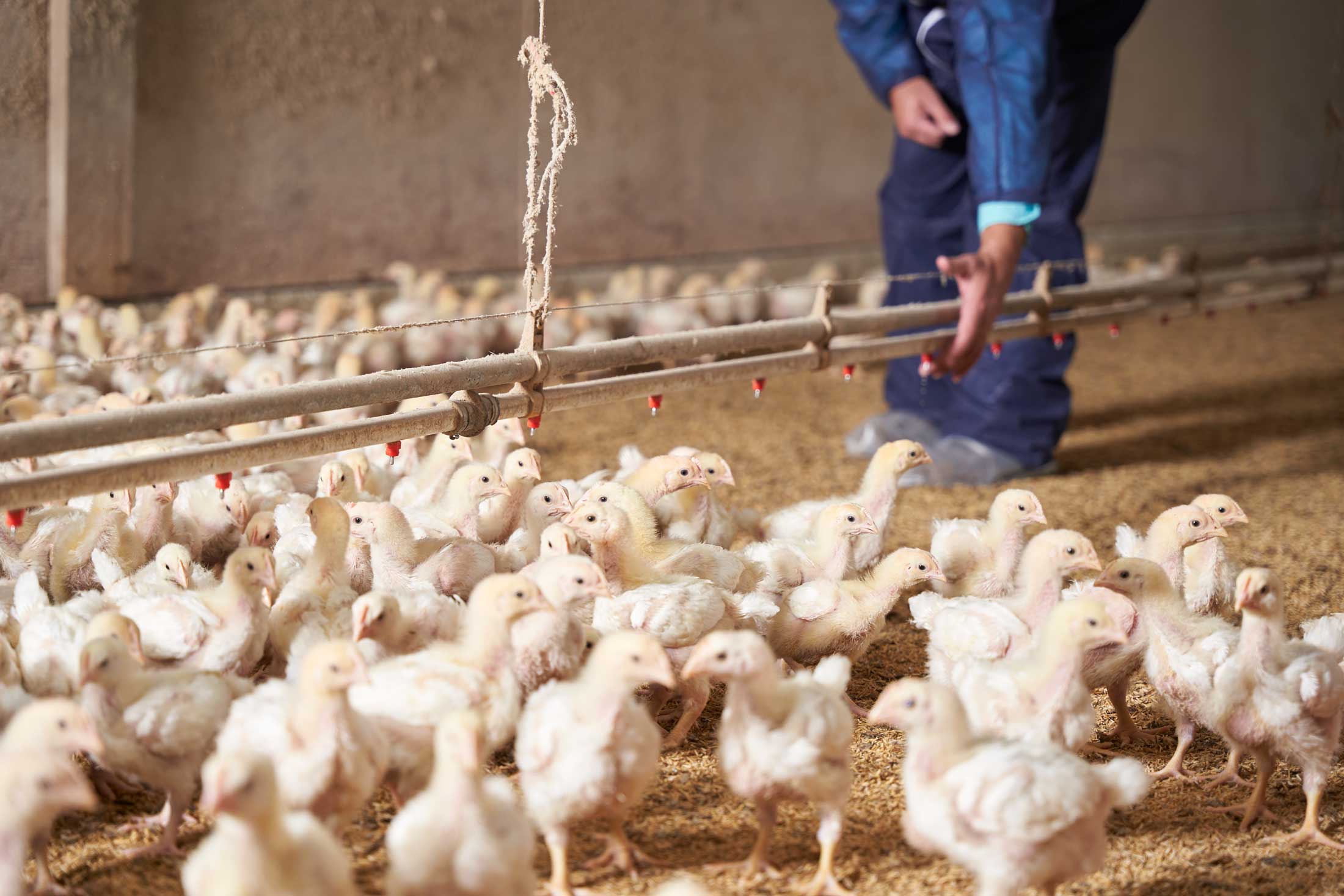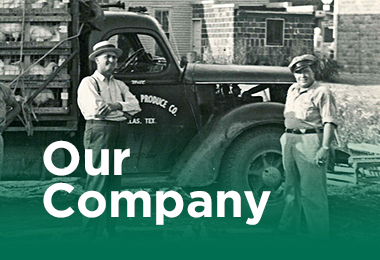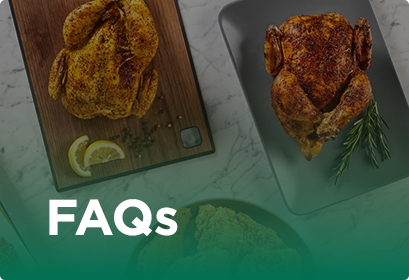At George’s, we often get questions from consumers about how our chickens are raised. We love that people are interested in where their food comes from, and we are happy to share!
First and foremost, we want our consumers to know that the health and welfare of chickens raised for George’s chicken products is of the utmost importance. We are acutely aware that our chickens are our livelihoods and treating them right is the right thing to do.
Chicken Houses
Our chickens are raised in enclosed environments called “chicken houses,” which are designed to provide a comfortable and supportive environment for chickens to grow and thrive. These chicken houses act as a protective shield against inclement weather, predators, and wild birds that may carry diseases like avian influenza. This protection is crucial, as domesticated birds, like chickens, have limited natural defenses compared to their wild counterparts.
Our chicken houses are also climate-controlled, ensuring that temperature and humidity levels support chickens’ well-being and growth. Lighting is another important aspect, which is carefully adjusted to mimic natural day-night cycles that promote wake and rest periods for the chickens.
Access to Feed and Water
Chickens raised for meat are not raised in cages! They are free to roam chicken houses 24/7 and have ready access to clean water and nutritious feed, formulated to support chickens’ growth throughout every life state. In fact, chicks’ feed is first pelletized, and then broken into smaller pieces, to ensure developing chicks get all of the nutrients they need, through a balanced diet—especially important for picky eaters.
Our Care Team
In addition to a good environment, clean water, and nutritious feed that support healthy growth, a rigorous animal welfare program also takes good partnerships to make the whole process successful. Our farmers, field service representatives, and veterinarians work together as a team, to support raising healthy chickens. A day on the farm is sometimes unpredictable, and the combination of strong communication, in-person visits, and expert guidance, whenever needed, is crucial to raising chickens responsibly and humanely.


